This article provides comprehensive guidance on identifying qualified legal professionals in Pittsburgh, covering various case types and offering practical tips for effective attorney selection.
Finding the right lawyer can be a daunting task, especially in a bustling city like Pittsburgh. With a variety of legal cases ranging from personal injury to complex family law matters, it’s essential to understand how to select a qualified attorney who meets your specific needs. Below, we delve into common types of legal cases and provide expert advice on how to find the best legal representation.
Personal injury cases arise from incidents where an individual suffers harm due to someone else’s negligence. This includes car accidents, slip and fall injuries, and workplace accidents. When searching for a personal injury attorney in Pittsburgh, consider looking for lawyers who specialize in this area and have a proven track record of successful settlements. Check online reviews and ask for referrals from friends or family. A qualified attorney should be able to provide clear information about their experience and approach to handling your case.
Medical malpractice involves negligence by healthcare professionals that results in harm to a patient. This area of law is complex, requiring an attorney with specific experience in medical cases. Look for lawyers who have a background in medicine or healthcare law. It’s also beneficial to find someone who has successfully handled similar cases in the past. Ensure they are familiar with the local laws and regulations that govern medical malpractice in Pennsylvania.
Breach of contract cases can occur in various contexts, including business agreements and consumer contracts. To find a lawyer specializing in this area, consider those who have experience in contract law and a history of resolving disputes effectively. Ask potential attorneys about their approach to negotiation and litigation, as well as their success rates in similar cases.
Property disputes often involve issues related to ownership, boundaries, or zoning. When selecting an attorney for property disputes, look for someone well-versed in real estate law. They should also have experience with local property laws and regulations. A good attorney will provide a clear strategy for resolving disputes, whether through negotiation or litigation.
Landlord-tenant disputes can arise over lease agreements and property conditions. If you’re involved in such a dispute, seek an attorney with experience in housing law. They should be knowledgeable about tenant rights and landlord obligations in Pennsylvania. A reliable lawyer can help navigate the complexities of lease agreements and represent you effectively in court if necessary.
Defamation cases involve false statements that harm an individual’s reputation. Whether it’s slander (spoken) or libel (written), finding a lawyer skilled in media law is crucial. Look for attorneys who have handled similar cases and understand the nuances of defamation law. They should be able to advise you on the strength of your case and the potential for recovery.
Employment disputes may involve wrongful termination, discrimination, or wage issues. To find an attorney experienced in labor law, search for legal professionals who focus on employee rights. It’s essential to select someone who is familiar with both federal and state labor laws, as they can provide the best guidance and representation for your situation.
Product liability cases arise when consumers are harmed by defective products. Finding a lawyer specialized in this area can enhance your chances of a successful claim. Look for attorneys with experience in handling cases against manufacturers and a strong understanding of product safety regulations.
Wrongful death cases involve claims made by surviving family members. An attorney experienced in handling these sensitive cases can provide essential support and legal guidance. When choosing a lawyer, look for someone who shows compassion and has a strong track record in wrongful death litigation.
Class action lawsuits allow groups of people to sue for similar grievances. Knowing how to find a lawyer with experience in class actions can ensure effective representation. Look for attorneys who have successfully led class action cases and can demonstrate their ability to manage complex litigation.
Criminal cases, including theft and assault, require skilled legal representation. Understanding how to find a competent criminal defense attorney is crucial for your defense. Seek attorneys who specialize in criminal law and have a solid understanding of the local justice system. They should be able to provide a clear defense strategy tailored to your case.
Family law cases encompass divorce, child custody, and support matters. Selecting an attorney who specializes in family law can make a significant difference in outcomes. Look for someone who is empathetic and can guide you through the emotional aspects of these cases while also being a strong advocate for your rights.
Bankruptcy cases can provide relief from overwhelming debt. Finding an attorney experienced in bankruptcy law is essential for navigating this complex area effectively. Look for lawyers who can explain the different types of bankruptcy and help you determine the best course of action for your financial situation.
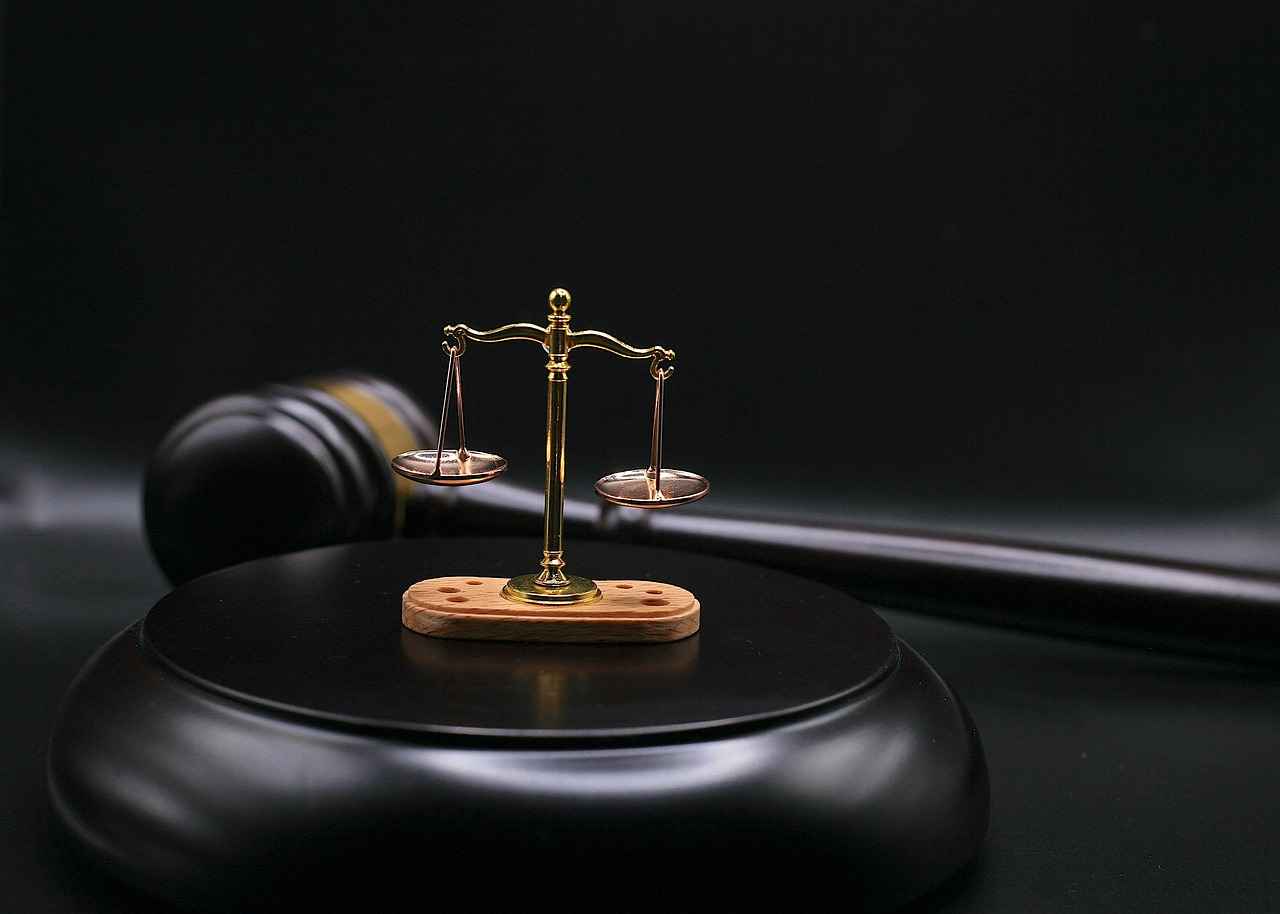
Understanding Personal Injury Cases
Personal injury cases are a significant part of the legal landscape in the United States, encompassing a variety of incidents that can lead to physical, emotional, or psychological harm. These cases can arise from numerous situations, including car accidents, slip and fall injuries, medical malpractice, and workplace accidents. Each type of incident presents unique challenges and requires specific legal expertise to navigate effectively.
When seeking legal representation for a personal injury case, it is crucial to understand the factors that can influence the outcome of your claim. Here are some key elements to consider:
- Experience and Specialization: Look for attorneys who specialize in personal injury law. Their experience with similar cases can significantly enhance your chances of a favorable outcome. For instance, an attorney who has successfully handled numerous car accident cases will be more adept at negotiating with insurance companies and understanding the nuances of traffic law.
- Track Record: Investigate the attorney’s history of settlements and verdicts. A strong track record of winning cases can be a good indicator of their competence. Many attorneys will provide case studies or testimonials from previous clients, which can help you gauge their effectiveness.
- Client Reviews and Ratings: Online reviews can provide insight into the attorney’s reputation. Websites such as Avvo and Yelp allow clients to rate their experiences, giving you a clearer picture of what to expect.
- Communication Skills: Effective communication is vital in a legal context. Ensure that the attorney is responsive to your inquiries and can explain complex legal concepts in a way that you understand. This will be crucial as your case progresses.
- Fee Structure: Personal injury attorneys often work on a contingency fee basis, meaning they only get paid if you win your case. Be sure to discuss their fee structure upfront and understand any additional costs that may arise.
In addition to these factors, it’s important to be aware of potential red flags when hiring a personal injury attorney:
- Promises of Guaranteed Outcomes: Be cautious of any attorney who guarantees a specific outcome. Legal cases are inherently unpredictable, and no attorney can assure you of victory.
- Pressure Tactics: Avoid attorneys who pressure you into making quick decisions. A reputable lawyer will provide you with the necessary information and time to make informed choices.
- Lack of Transparency: If an attorney is unwilling to discuss their experience, fees, or case strategies, it may be a sign of unprofessionalism.
Finding the right personal injury attorney can make a significant difference in the outcome of your case. By taking the time to thoroughly research and vet potential candidates, you can ensure that you have a skilled advocate on your side who is committed to protecting your rights and securing the compensation you deserve.

Medical Malpractice Claims: Navigating Complexities
Medical malpractice claims represent a significant area of personal injury law, focusing on instances where healthcare professionals fail to meet the accepted standards of care, resulting in patient harm. Such cases can arise from various forms of negligence, including misdiagnosis, surgical errors, medication mistakes, or inadequate follow-up care. Understanding the complexities of medical malpractice is crucial for anyone considering a claim.
When pursuing a medical malpractice case, it is essential to find an attorney who specializes in this specific field. Expertise in medical malpractice law is vital, as these cases often involve intricate medical details and require a thorough understanding of both legal and medical terminology. An attorney with a proven track record in handling similar cases can significantly enhance your chances of obtaining a favorable outcome.
Here are some practical steps to consider when searching for a qualified medical malpractice attorney:
- Research Credentials: Look for attorneys with specific credentials in medical malpractice. This includes board certifications, memberships in professional organizations, and a history of successful verdicts or settlements in similar cases.
- Seek Recommendations: Consult with friends, family, or other legal professionals for referrals to reputable medical malpractice attorneys. Personal experiences can provide valuable insights into an attorney’s capabilities.
- Utilize Online Platforms: Websites like Avvo and FindLaw offer directories of attorneys categorized by practice area, along with reviews and ratings from previous clients.
- Assess Communication Skills: During initial consultations, evaluate how well the attorney communicates complex medical and legal concepts. A good attorney should be able to explain these matters clearly and effectively.
- Evaluate Experience: Inquire about the attorney’s experience specifically in medical malpractice cases. Understanding their past cases, including outcomes and settlements, can provide insight into their effectiveness.
- Discuss Fees and Costs: Most medical malpractice attorneys work on a contingency fee basis, meaning they only get paid if you win your case. Ensure you understand their fee structure and any additional costs that may arise during the process.
It is also crucial to be aware of potential red flags when selecting a medical malpractice attorney. For instance, if an attorney offers guarantees of a specific outcome, it should raise concerns about their credibility. Legal outcomes are inherently uncertain, and no attorney can promise a particular result. Additionally, be wary of attorneys who are unwilling to discuss their past cases or provide references from former clients.
Finally, be prepared for the emotional and financial toll that a medical malpractice case can take. These cases can be lengthy and complex, often requiring extensive documentation and expert testimonies. Having a knowledgeable attorney by your side can help navigate these challenges and ensure that your rights are protected throughout the process.
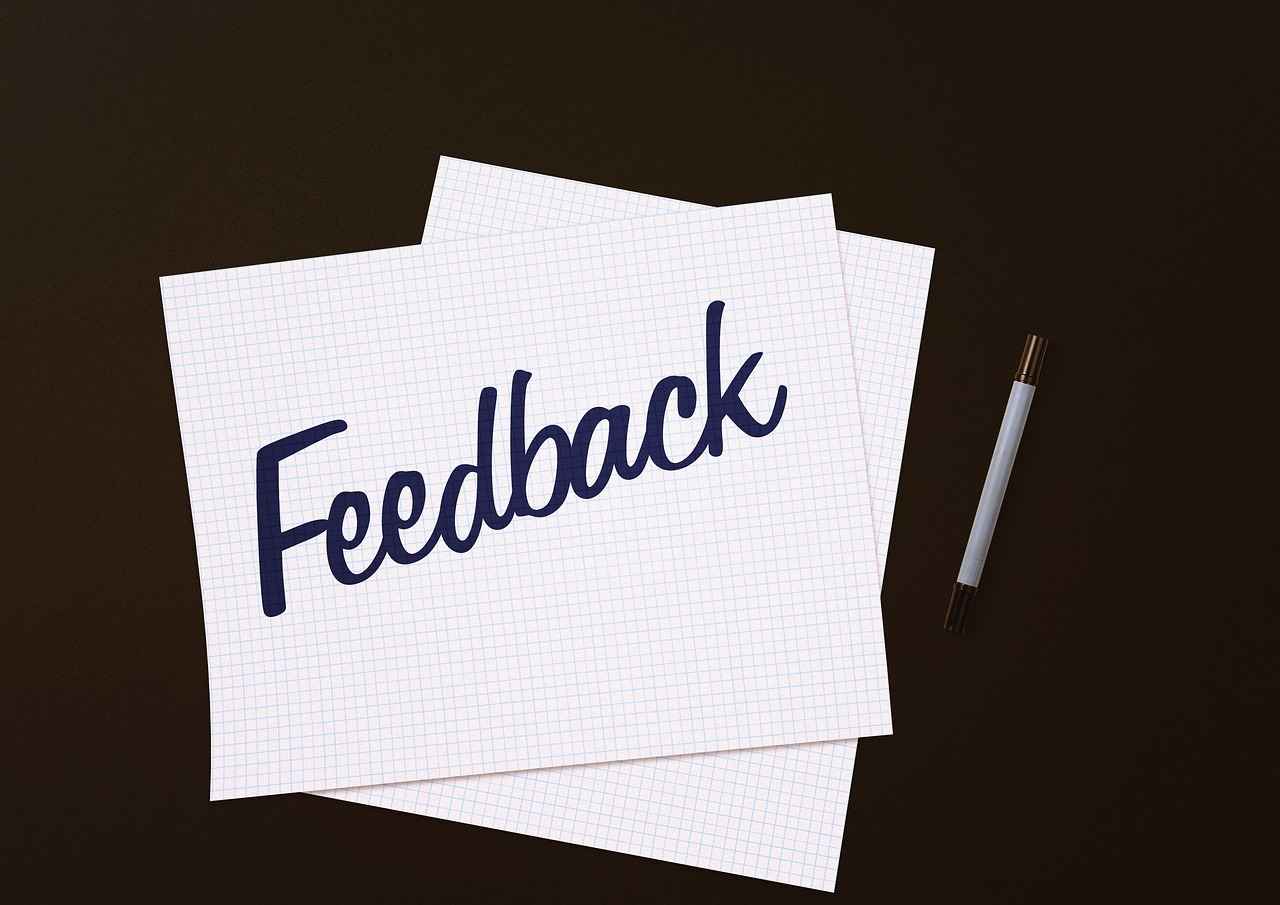
Breach of Contract: Legal Representation Essentials
Breach of contract cases can arise in various contexts, including business agreements and consumer contracts. Understanding how to find a lawyer who specializes in this area is vital for your case. In the complex world of legal agreements, a breach occurs when one party fails to fulfill their obligations as outlined in the contract. This can lead to significant financial and operational repercussions, making it essential to have the right legal representation.
When searching for a qualified attorney, consider the following steps:
- Research Specialization: Look for lawyers who specialize in contract law. This specialization is crucial as it ensures that the attorney is well-versed in the nuances of contract disputes.
- Check Experience: Evaluate the attorney’s experience in handling breach of contract cases. An attorney with a proven track record in similar cases will have the necessary skills to navigate your situation effectively.
- Review Credentials: Verify the attorney’s credentials, including their education, licenses, and any relevant certifications. Membership in professional organizations, such as the American Bar Association, can also indicate a commitment to staying updated on legal developments.
In major cities like New York City, Los Angeles, and Chicago, there are numerous platforms where you can find qualified attorneys:
- Legal Directories: Websites like Avvo and FindLaw provide comprehensive listings of lawyers by specialty and location, along with client reviews and ratings.
- Referrals: Ask friends, family, or business associates for referrals. Personal recommendations can lead you to trustworthy attorneys who have successfully handled similar cases.
- Consultations: Many attorneys offer free initial consultations. Use this opportunity to discuss your case and gauge the attorney’s expertise and approach to legal matters.
As you evaluate potential attorneys, pay attention to red flags that may indicate a lack of professionalism or expertise:
- Poor Communication: If an attorney is difficult to reach or does not respond promptly to inquiries, this may reflect their overall commitment to your case.
- Lack of Transparency: Be wary of attorneys who are vague about their fees or the legal process. A reputable attorney should provide clear information about their rates and the potential costs involved in your case.
- Negative Reviews: While one negative review may not be a deal-breaker, a pattern of complaints regarding an attorney’s conduct or performance should raise concerns.
In conclusion, finding the right attorney for a breach of contract case requires careful consideration and research. By focusing on specialization, experience, and communication, you can select a legal professional who will effectively advocate for your rights and interests. In the dynamic legal landscape of cities like Pittsburgh, ensuring you have the right representation can make all the difference in achieving a favorable outcome in your case.

Property Disputes: Finding the Right Lawyer
Property disputes can arise from various issues such as ownership claims, boundary disagreements, or zoning regulations. These disputes can be complex and emotionally charged, often requiring legal intervention to resolve. When faced with a property dispute, it is essential to select a lawyer who is not only knowledgeable about real estate law but also experienced in handling similar cases. Here are some practical tips for finding the right lawyer for your property dispute.
- Research Local Attorneys: Start by researching attorneys in your area who specialize in property law. Websites like Avvo and FindLaw can provide valuable information about local lawyers, including their specialties and client reviews.
- Check Credentials: Look for attorneys who have specific credentials in real estate law, such as membership in the American Bar Association’s Real Property, Trust and Estate Law Section. This indicates a commitment to staying updated on legal trends and practices.
- Experience Matters: Choose a lawyer with significant experience in handling property disputes. Ask potential attorneys about their case history and outcomes related to similar disputes.
- Initial Consultation: Take advantage of free initial consultations offered by many attorneys. This is an opportunity to assess their communication style, approach to your case, and overall compatibility.
- Avoid Red Flags: Be wary of attorneys who make unrealistic promises or guarantee outcomes, as this can indicate a lack of integrity. Additionally, avoid lawyers who are not transparent about their fees or who pressure you into making quick decisions.
In metropolitan areas like New York City, Los Angeles, and Chicago, the competition among attorneys can be fierce. Therefore, it’s crucial to take your time in selecting the right legal representation. Look for attorneys who have a strong reputation in the community, as well as positive reviews from previous clients. Engaging with local real estate agents or community organizations can also provide referrals to trusted legal professionals.
Furthermore, consider the attorney’s negotiation skills, as many property disputes can be settled outside of court through mediation or arbitration. A lawyer who is adept at negotiation can help you achieve a favorable outcome without the need for lengthy and costly litigation.
Ultimately, finding the right attorney for your property dispute involves thorough research, careful consideration of credentials, and a focus on building a trusting relationship. With the right legal support, you can navigate the complexities of property disputes more effectively and work towards a resolution that meets your needs.
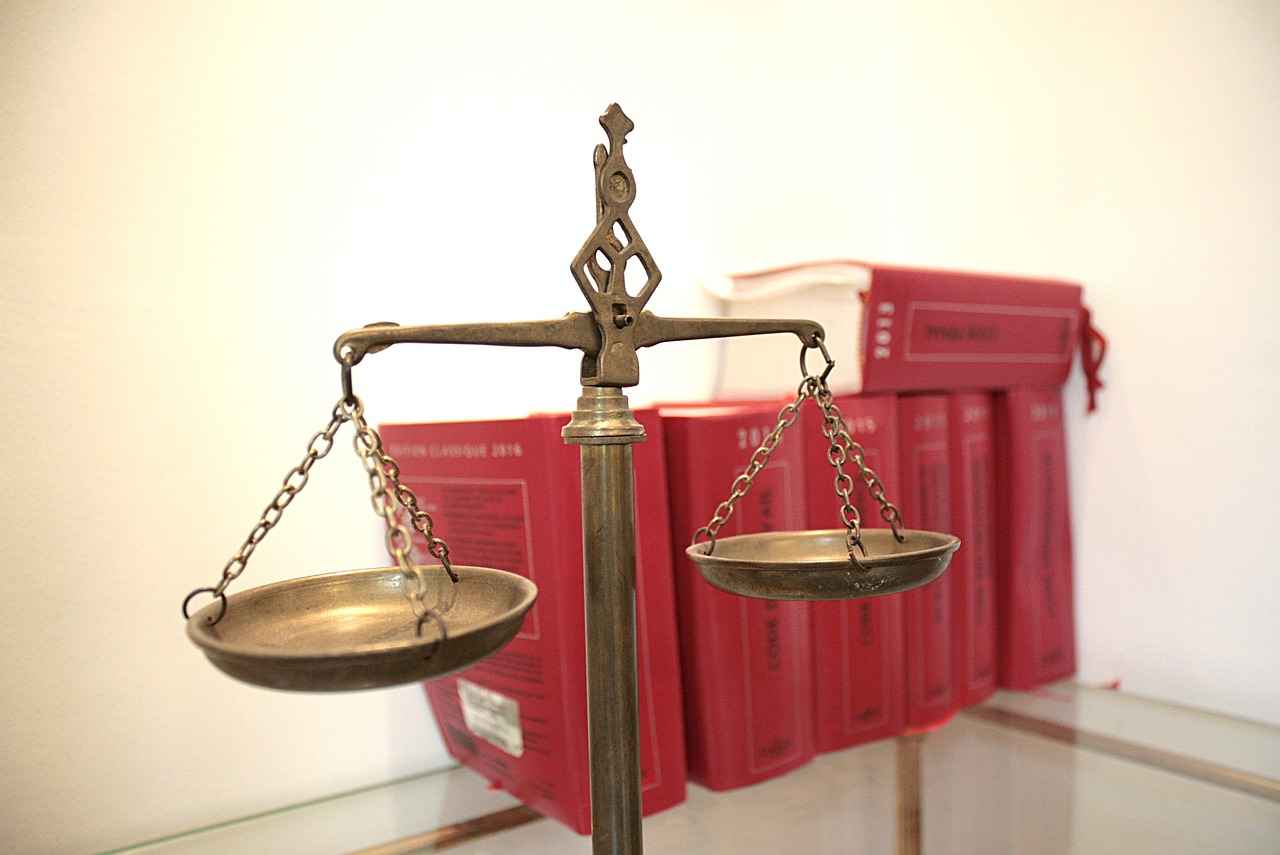
Landlord-Tenant Disputes: Legal Guidance Needed
Landlord-tenant disputes are a common occurrence in rental housing markets across the United States. These disputes can arise from various issues, including disagreements over lease agreements, property conditions, and security deposits. Understanding the nuances of these disputes and knowing how to find the right legal representation can significantly affect the outcome of the situation.
When faced with a landlord-tenant dispute, it is essential to choose a lawyer who specializes in housing law. This area of law encompasses a wide range of issues, including tenant rights, eviction processes, and lease negotiations. Here are some key steps to consider when looking for a qualified attorney:
- Research Local Attorneys: Start by searching for lawyers in your area who specialize in housing law. Online legal directories, such as Avvo and FindLaw, can provide valuable information and reviews about local attorneys.
- Check Credentials: Look for attorneys who have experience in landlord-tenant disputes specifically. Verify their credentials, including their education, years of practice, and any relevant certifications in housing law.
- Seek Recommendations: Ask friends, family, or colleagues for recommendations. Personal referrals can often lead you to trustworthy legal professionals who have a proven track record.
- Schedule Consultations: Many attorneys offer free initial consultations. Use this opportunity to discuss your case and gauge the attorney’s understanding of landlord-tenant laws and their approach to resolving disputes.
- Assess Communication Skills: Effective communication is crucial in legal matters. Choose a lawyer who listens to your concerns, explains legal concepts clearly, and keeps you informed throughout the process.
- Understand Fee Structures: Different attorneys have varying fee structures, such as hourly rates or flat fees. Ensure you understand how you will be charged and what services are included in those fees.
In addition to these steps, be aware of common red flags when hiring a lawyer:
- Lack of Experience: Avoid attorneys who do not have a background in housing law or landlord-tenant disputes.
- Poor Reviews: Check online reviews and ratings. Consistently negative feedback may indicate a lack of professionalism or effectiveness.
- High Pressure Tactics: Be cautious of lawyers who pressure you to sign contracts or make quick decisions without giving you adequate time to consider your options.
By taking these steps and being vigilant about your choices, you can find a qualified attorney to help navigate your landlord-tenant dispute. Remember, having the right legal guidance can make a significant difference in achieving a favorable outcome.

Defamation Cases: Slander vs. Libel
Defamation cases are critical in protecting an individual’s or entity’s reputation against false statements that cause harm. In the legal world, defamation is categorized into two main types: slander and libel. Understanding the distinction between these two forms is essential for anyone considering legal action.
Slander refers to defamatory statements that are made in a spoken form. This could include verbal comments made in public, during a speech, or even in casual conversation. The challenge with slander cases is that the burden of proof often lies with the plaintiff, who must demonstrate that the spoken statements were not only false but also damaging to their reputation.
On the other hand, libel involves written or published statements, which can include articles, books, social media posts, or any other form of documented communication. Because libelous statements are preserved in writing, they often carry more weight in court, making it easier for the plaintiff to prove their case. The permanence of written statements can lead to long-lasting damage, which is why libel cases are taken very seriously.
When pursuing a defamation case, it is crucial to find a lawyer who specializes in media law or defamation cases. Here are some practical steps to help you find the right legal representation:
- Research Online: Utilize legal directories such as Avvo, FindLaw, or Justia to locate attorneys with expertise in defamation law.
- Check Credentials: Look for lawyers who have a strong background in media law, including relevant certifications or memberships in professional organizations.
- Read Reviews: Client testimonials can provide insight into an attorney’s effectiveness and reputation. Look for reviews on platforms like Google and Yelp.
- Consultation: Schedule a consultation to discuss your case. This meeting can help you gauge the attorney’s understanding of defamation law and their approach to handling cases.
- Assess Experience: Inquire about their experience with similar cases. A seasoned attorney will have a better grasp of the nuances involved in defamation claims.
It is also important to be aware of red flags when hiring an attorney for a defamation case:
- Lack of Experience: Be cautious of lawyers who do not have a proven track record in defamation cases.
- High Fees Without Transparency: Ensure that the attorney is clear about their fee structure and does not impose hidden charges.
- Poor Communication: If an attorney is unresponsive or fails to communicate effectively during initial consultations, it may be a sign of future issues.
Defamation cases can be complex and emotionally charged, making it vital to have a competent attorney by your side. With the right legal counsel, you can navigate the intricacies of slander and libel claims, ensuring that your reputation is defended and justice is served.

Employment Disputes: Protecting Your Rights
Employment disputes can arise in various forms, including wrongful termination, discrimination, and wage issues. These conflicts can significantly impact your career and financial stability, making it essential to understand your rights and the legal options available to you. Selecting an attorney with experience in labor law is crucial for effectively navigating these challenges and ensuring your rights as an employee are protected.
When seeking legal representation for employment disputes, it’s important to consider several factors:
- Experience in Labor Law: Look for attorneys who specialize in employment law. Their expertise will help you understand the nuances of your case, whether it involves unlawful termination or discriminatory practices.
- Track Record of Success: Research the attorney’s past cases and their outcomes. A lawyer with a proven success rate in similar disputes is more likely to provide effective representation.
- Client Reviews and Testimonials: Check online reviews and testimonials from previous clients. This feedback can offer insights into the attorney’s communication style, professionalism, and effectiveness.
- Initial Consultation: Many attorneys offer a free initial consultation. Use this opportunity to evaluate their approach, ask questions about your case, and assess their willingness to advocate for your rights.
In addition to these factors, be aware of potential red flags when hiring an attorney:
- High Pressure Tactics: Beware of attorneys who pressure you to sign a contract or make quick decisions. A reputable lawyer will provide you with the necessary information and time to make an informed choice.
- Lack of Communication: An attorney who is unresponsive or difficult to reach may not prioritize your case. Clear communication is vital for a successful attorney-client relationship.
- Unclear Fee Structures: Ensure that the attorney clearly explains their fee structure. Hidden fees or vague billing practices can lead to misunderstandings down the line.
When you find yourself in an employment dispute, having the right legal support can make all the difference. An experienced attorney can help you navigate complex laws and advocate for your rights, whether you’re dealing with a wrongful termination claim, discrimination, or wage theft. By taking the time to find a qualified attorney, you can enhance your chances of a favorable outcome and regain peace of mind in your professional life.

Product Liability: Holding Manufacturers Accountable
Product liability cases are an essential aspect of consumer protection law in the United States. These cases arise when consumers suffer harm due to defective or unsafe products. The legal framework surrounding product liability is designed to hold manufacturers, distributors, and retailers accountable for the safety of the products they offer. This accountability is crucial in ensuring that consumers can trust the goods they purchase.
There are three primary types of product defects that can lead to liability claims:
- Design Defects: These occur when a product is inherently unsafe due to its design, even if it is manufactured correctly.
- Manufacturing Defects: These happen when a product is made incorrectly, leading to safety issues that were not intended in the design phase.
- Marketing Defects: Also known as failure to warn, these involve inadequate instructions or warnings that could prevent misuse or harm.
In the event of injury caused by a defective product, it is crucial to seek legal representation from a lawyer who specializes in product liability. An attorney with experience in this field can significantly enhance your chances of a successful claim. Here are some practical steps to find the right legal professional:
- Research Specialization: Look for attorneys who specifically handle product liability cases. Their specialized knowledge of the laws and precedents in this area will be invaluable.
- Check Credentials: Verify the attorney’s education, bar admissions, and any relevant certifications. Membership in professional organizations, such as the American Association for Justice, can indicate a commitment to this area of law.
- Read Reviews: Online platforms like Avvo, Martindale-Hubbell, and Google Reviews can provide insights into an attorney’s reputation and past client experiences.
- Assess Experience: Inquire about the attorney’s experience with product liability cases, including their success rate and the types of products involved.
- Initial Consultation: Many attorneys offer free consultations. Use this opportunity to discuss your case and gauge the attorney’s understanding and approach.
When evaluating potential lawyers, watch out for red flags that could indicate problems:
- High-pressure tactics: Be wary of attorneys who rush you into signing contracts or making decisions.
- Lack of transparency: If an attorney is unwilling to discuss fees or their process, consider it a warning sign.
- Limited communication: An attorney should be responsive and keep you informed about your case’s progress.
In major metropolitan areas like New York City, Los Angeles, and Chicago, the competition among lawyers can be intense. Utilize local bar associations and legal referral services to find qualified attorneys. Additionally, consider reaching out to consumer advocacy groups, which may have resources or recommendations for product liability lawyers.
Ultimately, the key to a successful product liability claim lies in selecting an attorney who not only understands the complexities of product defects but also has a proven track record of securing favorable outcomes for their clients. By following these guidelines, you can take the necessary steps to ensure that you are adequately represented in your pursuit of justice against negligent manufacturers.

Wrongful Death Cases: Seeking Justice
Wrongful death cases are among the most devastating legal issues faced by families in the United States. These cases arise when a person dies due to the negligence or intentional actions of another party. Surviving family members, such as spouses, children, or parents, have the legal right to file a claim for damages resulting from the wrongful death. This claim seeks to hold the responsible party accountable and can provide financial compensation for loss of income, funeral expenses, and emotional distress.
When navigating the complexities of wrongful death claims, it is crucial to have an experienced attorney by your side. A lawyer specializing in wrongful death cases understands the intricacies of these sensitive matters and can provide essential support throughout the legal process. They can help gather evidence, interview witnesses, and establish a clear link between the negligent actions and the death of your loved one.
Finding the right attorney for a wrongful death case involves several important steps:
- Research and Referrals: Start by seeking referrals from friends, family, or colleagues who have had positive experiences with attorneys. Additionally, online legal directories and review platforms can provide insights into a lawyer’s reputation and success rate.
- Experience Matters: Look for attorneys who specialize in wrongful death cases and have a proven track record of handling similar cases. Their experience will be invaluable in navigating the legal system and advocating for your rights.
- Consultations: Many attorneys offer free initial consultations. Use this opportunity to discuss your case, ask questions about their experience, and gauge their understanding of your situation. Pay attention to how they communicate and whether they show empathy for your loss.
- Check Credentials: Verify the attorney’s credentials, including their education, bar admissions, and any professional affiliations. Membership in organizations such as the American Association for Justice can indicate a commitment to representing plaintiffs in wrongful death cases.
- Fee Structure: Understand the attorney’s fee structure before signing any agreements. Many wrongful death attorneys work on a contingency fee basis, meaning they only get paid if you win your case. Ensure you are clear on what percentage they will take and any additional costs you may incur.
- Trust Your Instincts: Finally, trust your instincts. You should feel comfortable and confident in your attorney’s abilities to represent your interests effectively. If something feels off during your initial meetings, it may be worth exploring other options.
In wrongful death cases, time is often of the essence. There are statutes of limitations that dictate how long you have to file a claim, which can vary by state. Therefore, it is critical to act promptly and seek legal counsel as soon as possible. An experienced attorney can guide you through the process, ensuring that all necessary documentation is filed correctly and on time.
Additionally, wrongful death cases can be emotionally taxing. An attorney who is compassionate and understanding can help alleviate some of the burdens during this difficult time. They will not only advocate for your legal rights but also provide support as you navigate your grief and the complexities of the legal system.
Ultimately, seeking justice for a loved one lost due to wrongful death is about more than just financial compensation; it is about holding those responsible accountable and ensuring that such tragedies are prevented in the future. With the right legal representation, families can find a path toward healing and justice.

Class Action Lawsuits: Collective Legal Action
Class action lawsuits represent a powerful mechanism for individuals to collectively seek justice against larger entities, such as corporations or government bodies, that have caused similar harm. These lawsuits allow a group of people, who share common grievances, to band together and file a single lawsuit rather than each individual pursuing separate claims. This not only streamlines the legal process but also enhances the chances of achieving a favorable outcome.
In the context of class action lawsuits, it is crucial to understand the importance of finding a lawyer with specific experience and expertise in this area of law. The complexities involved in class action cases often require specialized knowledge, as these lawsuits can cover a wide range of issues, including consumer fraud, environmental disasters, and product liability claims. Therefore, engaging an attorney who has successfully handled class actions can significantly impact the effectiveness of your representation.
When searching for a qualified attorney in Pittsburgh, or any major metropolitan area, consider the following strategies:
- Research Law Firms: Start by looking for law firms that have a dedicated class action practice. These firms usually have the necessary resources and experience to handle complex litigation.
- Check Credentials: Verify the attorney’s credentials, including their education, bar association memberships, and any relevant certifications in class action or consumer protection law.
- Look for Experience: Evaluate the attorney’s past case history. Look for cases similar to yours that they have successfully litigated.
- Read Reviews and Testimonials: Online reviews and testimonials from previous clients can provide insight into the attorney’s reputation and effectiveness.
- Consult Legal Directories: Utilize legal directories like Martindale-Hubbell or Avvo, which provide ratings and reviews of attorneys based on peer feedback and client experiences.
In addition to these strategies, it is essential to be aware of potential red flags when hiring an attorney for a class action lawsuit:
- Lack of Experience: Be cautious of attorneys who do not have a proven track record in class action lawsuits.
- High Fees Without Clear Justification: Ensure that the attorney’s fee structure is transparent and reasonable, especially since class actions often operate on a contingency basis.
- Poor Communication: An attorney who is unresponsive or fails to communicate effectively may not be the best choice for your case.
Lastly, always arrange an initial consultation to discuss your case in detail. This meeting is an excellent opportunity to assess the attorney’s understanding of class action lawsuits and their approach to your specific situation. A knowledgeable attorney will be able to explain the process, outline potential outcomes, and provide a clear strategy for moving forward.
By following these guidelines, you can increase your chances of finding a competent and trustworthy lawyer who can effectively represent you in a class action lawsuit. Remember, the right legal representation is crucial in navigating the complexities of collective legal action, and it can make a significant difference in achieving justice.
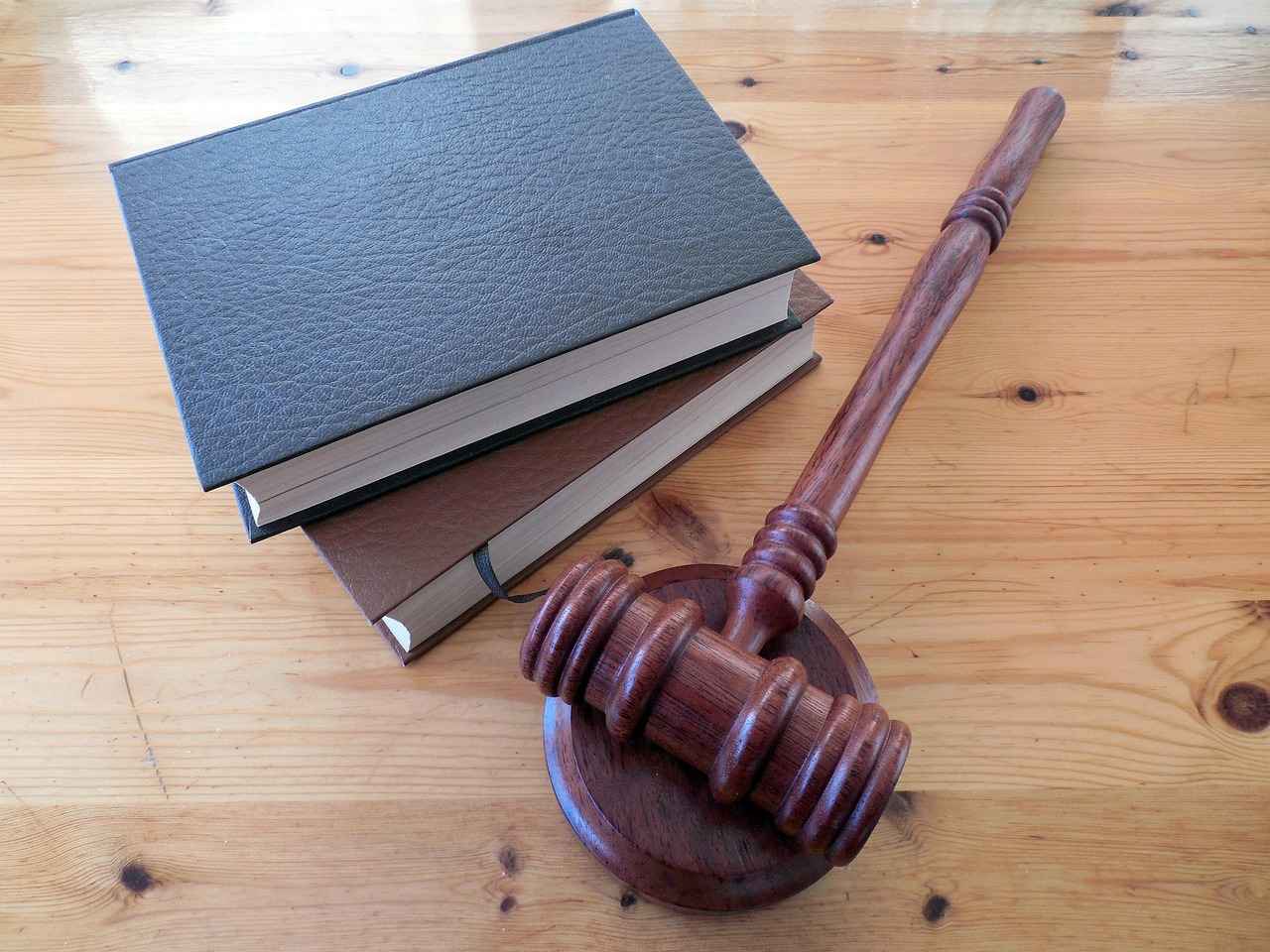
Criminal Cases: Navigating the Justice System
When faced with criminal charges, whether for theft, assault, or more serious offenses such as drug offenses and homicide, having a skilled legal representative is essential. The complexities of the U.S. justice system can be daunting, and a competent criminal defense attorney can significantly influence the outcome of your case. Understanding how to find the right attorney is crucial for your defense.
To begin your search, consider the following steps:
- Research Local Attorneys: Utilize online platforms such as Avvo, FindLaw, and Justia to locate attorneys specializing in criminal law within your area. These platforms provide valuable information on attorneys’ backgrounds, client reviews, and areas of expertise.
- Check Credentials: Look for attorneys with a strong educational background, relevant certifications, and a proven track record in handling criminal cases. Membership in professional organizations like the National Association of Criminal Defense Lawyers (NACDL) can also indicate a commitment to staying updated on legal practices.
- Schedule Consultations: Many attorneys offer free initial consultations. Use this opportunity to discuss your case and assess their approach. Pay attention to how they communicate and whether they listen to your concerns.
- Evaluate Experience: Ensure that the attorney has extensive experience in criminal defense, particularly with cases similar to yours. Their familiarity with local courts and judges can be an advantage.
- Discuss Fees: Understand the attorney’s fee structure upfront. Some may charge a flat fee, while others bill hourly. Make sure you are comfortable with the financial arrangement before proceeding.
It is also important to be aware of red flags when selecting a criminal defense attorney:
- Lack of Communication: If an attorney is difficult to reach or does not respond promptly to your inquiries, it may indicate a lack of commitment to your case.
- Unrealistic Promises: Be cautious of attorneys who guarantee specific outcomes. The legal process is unpredictable, and no attorney can assure you of a particular result.
- Pressure Tactics: Avoid attorneys who pressure you into making quick decisions. A reputable attorney will give you the time you need to make informed choices.
In major metropolitan areas such as New York City, Los Angeles, and Chicago, the competition among criminal defense attorneys can be fierce. Utilize local bar associations and legal aid organizations for additional resources and referrals. These organizations can often connect you with qualified attorneys who may offer services at reduced rates for those in financial need.
Ultimately, finding the right criminal defense attorney requires careful consideration and due diligence. By following these guidelines, you can enhance your chances of securing effective legal representation that will advocate for your rights and work towards a favorable outcome in your case.
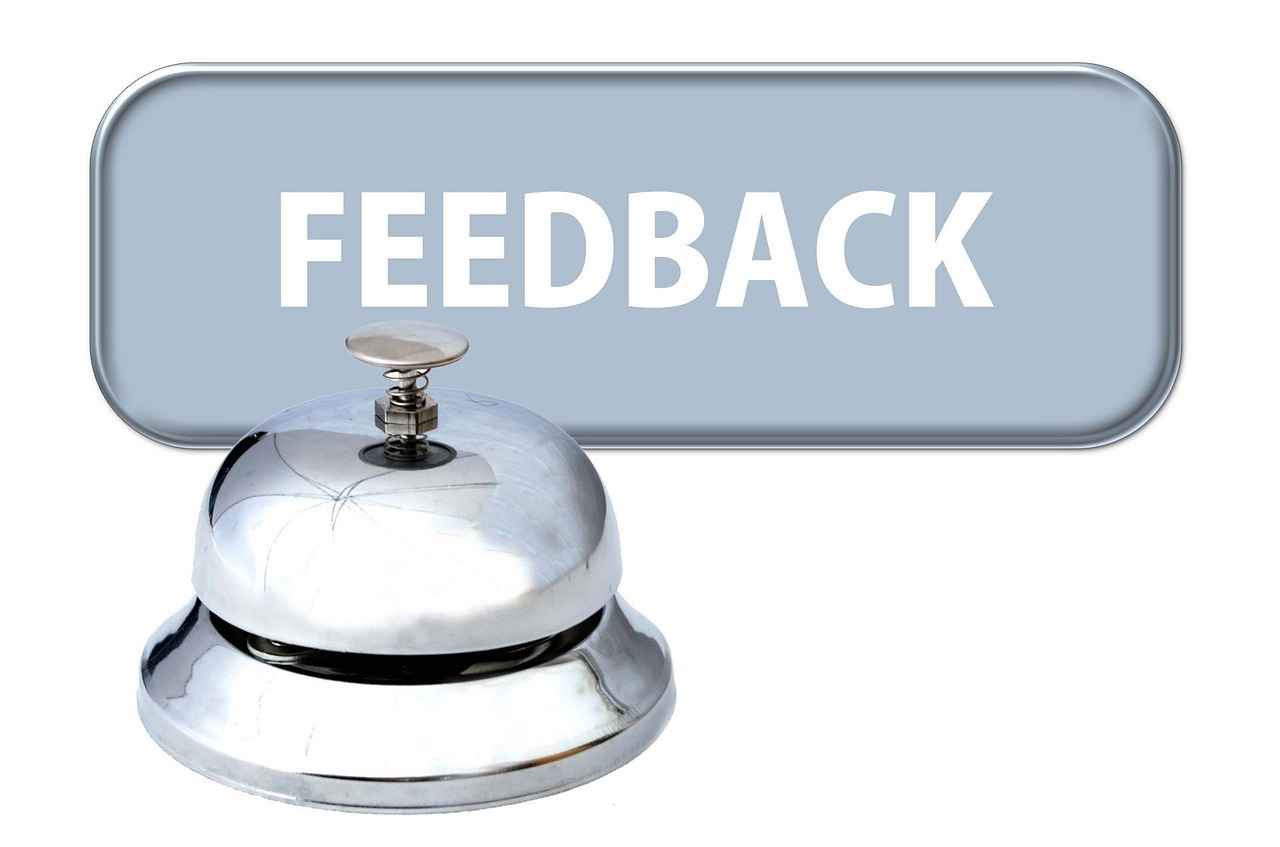
Family Law: Divorce and Custody Issues
Family law is a vital area of legal practice that addresses some of the most personal and emotionally charged issues individuals face. Cases in this field typically include divorce, child custody, and support matters, which can significantly impact the lives of all parties involved. Therefore, selecting the right attorney who specializes in family law is crucial for achieving favorable outcomes.
When considering a divorce, it is essential to understand the various legal aspects involved. A knowledgeable attorney can guide you through the complexities of property division, spousal support (alimony), and the emotional challenges that accompany the dissolution of a marriage. Look for attorneys who have a proven track record in handling divorce cases, as they will be familiar with the nuances of state laws and court procedures.
Child custody is often one of the most contentious issues in family law. Parents may find themselves in disputes over physical custody, legal custody, and visitation rights. An attorney with expertise in child custody matters can help navigate these sensitive issues, advocating for your interests while keeping the best interests of the child at the forefront. It is important to seek out lawyers who have experience in mediation and negotiation, as many custody cases are resolved outside of court.
In addition to custody, child support is another critical aspect of family law. Understanding the guidelines for calculating child support payments and the factors that courts consider can be daunting. An experienced family law attorney will ensure that your financial responsibilities are fair and in accordance with state laws. They can also assist in modifying support agreements if circumstances change over time.
When searching for a family law attorney, consider the following practical tips:
- Referrals: Ask friends, family, or colleagues for recommendations. Personal experiences can provide valuable insights.
- Online Reviews: Utilize platforms like Avvo and Martindale-Hubbell to read reviews and ratings of potential attorneys.
- Consultations: Schedule initial consultations to gauge the attorney’s approach and compatibility with your needs.
- Credentials: Look for attorneys who are members of professional organizations, such as the American Academy of Matrimonial Lawyers or local bar associations.
- Experience: Inquire about their experience with cases similar to yours, as specialized knowledge can greatly influence the outcome.
While the search for a family law attorney can be overwhelming, being informed and proactive can significantly ease the process. Remember to watch out for red flags such as lack of communication, pressure to make quick decisions, or attorneys who do not provide clear explanations of fees and processes. By taking the time to research and select a qualified attorney, you can ensure that your family law case is handled with the care and expertise it deserves.
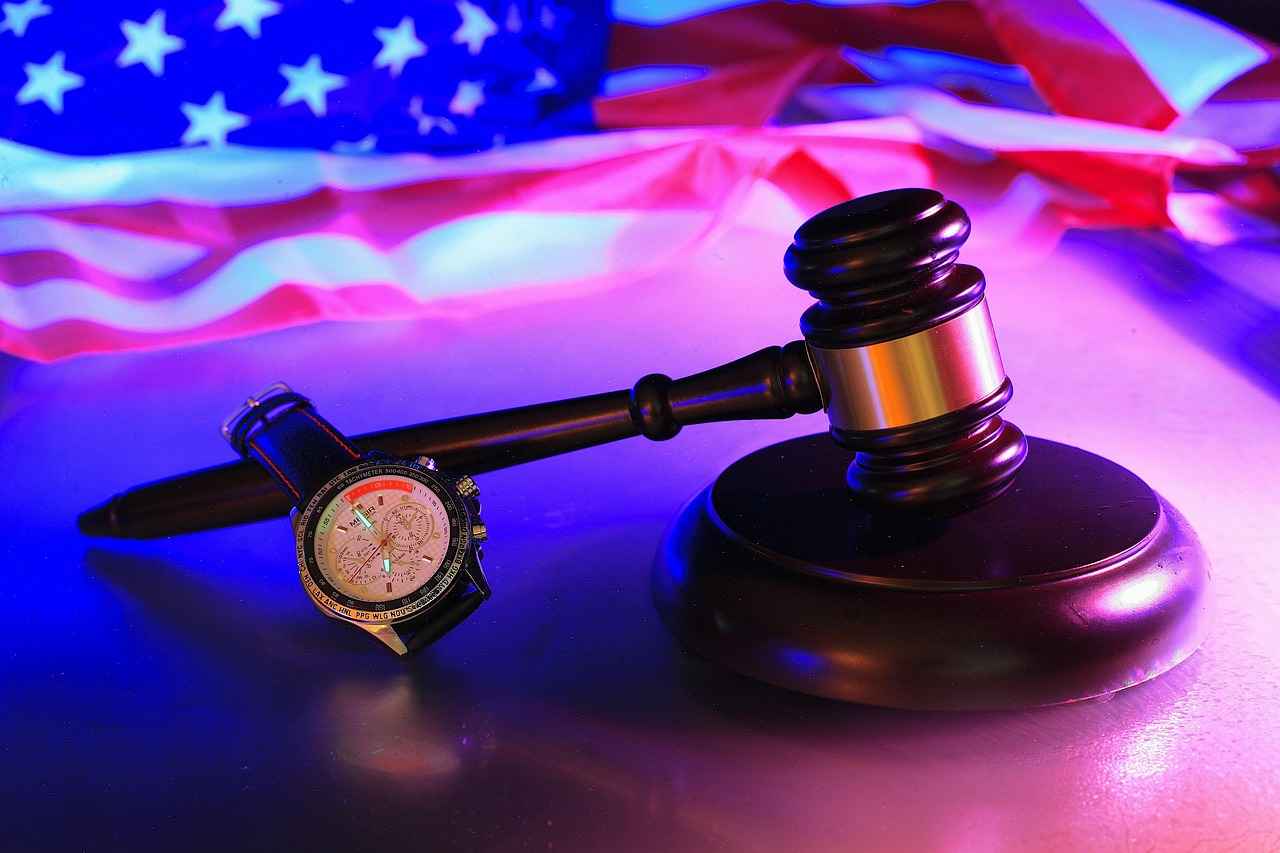
Bankruptcy and Financial Legal Issues
In today’s economic climate, many individuals and businesses face overwhelming financial challenges that can lead to bankruptcy. This legal process can provide a much-needed lifeline by allowing debtors to reorganize or eliminate their debts, offering a fresh start. However, navigating the complexities of bankruptcy law requires the expertise of a qualified attorney.
When seeking legal representation for bankruptcy cases, it is essential to consider several factors:
- Experience in Bankruptcy Law: Look for attorneys who specialize in bankruptcy and have a proven track record of handling similar cases. Their experience can significantly influence the outcome of your case.
- Knowledge of Local Bankruptcy Courts: Bankruptcy laws can vary by state and even by district. An attorney familiar with the local court system can navigate the nuances effectively.
- Client Reviews and Testimonials: Research online reviews and client testimonials to gauge the attorney’s reputation and success rate. Positive feedback from previous clients can be a good indicator of their capability.
- Free Consultations: Many bankruptcy attorneys offer free initial consultations. Use this opportunity to assess their communication style, willingness to answer questions, and overall approach to your case.
- Transparent Fee Structure: Ensure that the attorney provides a clear breakdown of their fees and any additional costs associated with the bankruptcy process. Understanding the financial implications upfront can prevent surprises later on.
In major metropolitan areas like New York City, Los Angeles, and Chicago, the demand for bankruptcy lawyers is high. Utilize online platforms like Avvo, LegalMatch, or FindLaw to compare attorneys based on their specialties, client ratings, and geographical location. Additionally, local bar associations often provide referral services that can connect you with reputable lawyers in your area.
Be cautious of red flags when hiring a bankruptcy attorney. Avoid lawyers who guarantee specific outcomes or pressure you into making quick decisions. A reputable attorney will provide honest assessments and realistic expectations regarding your case.
Ultimately, finding the right bankruptcy attorney can make a significant difference in your financial recovery journey. By taking the time to research and evaluate potential candidates, you can secure the legal support necessary to navigate this challenging process effectively.
Frequently Asked Questions
- How do I choose the right lawyer for my case?
Choosing the right lawyer involves considering their experience, specialization, and client reviews. Look for someone who has handled cases similar to yours and has a track record of success.
- What should I expect during my first meeting with a lawyer?
During your first meeting, expect to discuss your case details. The lawyer will ask questions to understand your situation better and explain their approach to handling your case.
- How much do lawyers in Pittsburgh charge?
Lawyer fees can vary widely based on their experience and the complexity of your case. Some charge hourly rates, while others may work on a contingency fee basis, meaning they only get paid if you win your case.
- Can I handle my legal issue without a lawyer?
While it’s possible to represent yourself, it’s often not advisable. Legal matters can be complex, and having an experienced attorney can significantly improve your chances of a favorable outcome.
- What should I bring to my initial consultation?
Bring any relevant documents, such as contracts, medical records, or correspondence related to your case. This information will help the lawyer assess your situation more effectively.
- How long will my case take to resolve?
The duration of a case can vary significantly depending on its complexity and the court’s schedule. Your lawyer can provide a more accurate estimate based on your specific circumstances.














